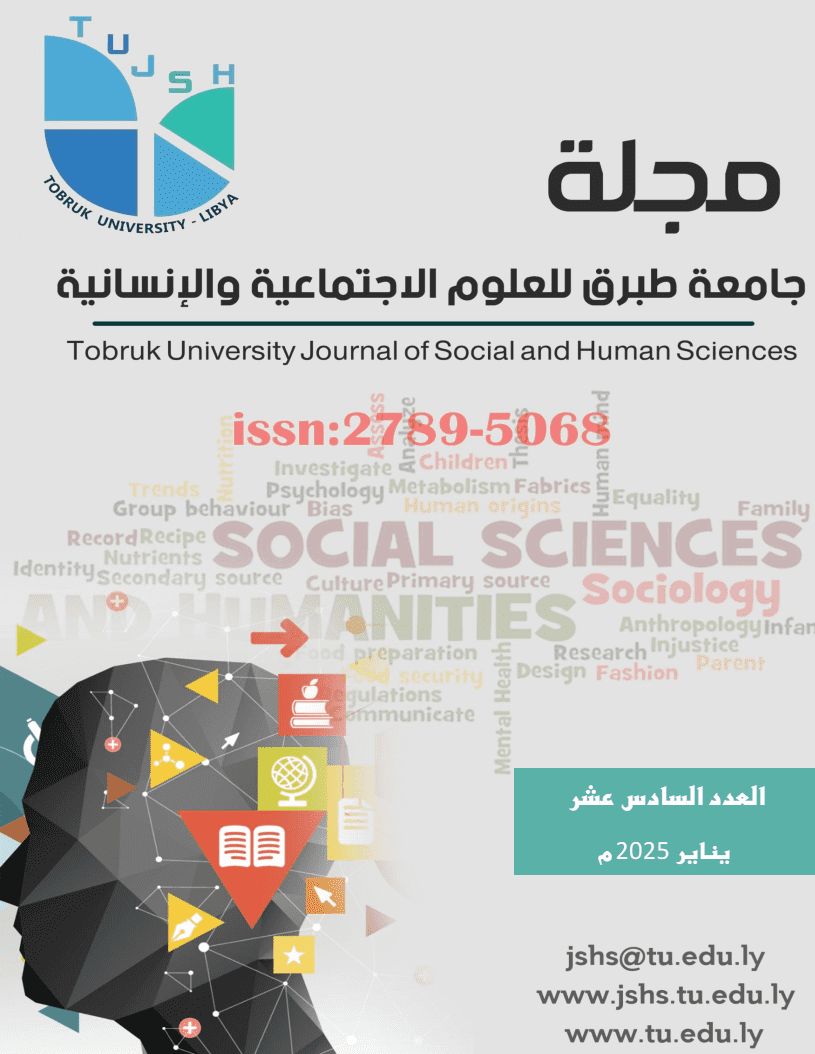A comparative study showing the impact of incentives on job satisfaction among employees at Zefta Specialized Hospital, Egypt, and Jalu Central Hospital, Libya.
DOI:
https://doi.org/10.64516/g8jr8e10Keywords:
Decision making , Incentives , Job satisfaction , Statistical significance , Study assignmentsAbstract
Countries tend to increase production and raise the efficiency of the worker, and that one of the factors for increasing production is job satisfaction, and to reach this goal, there must be material and moral incentives, and the development of management to reach that goal, so this was a comparative study that shows the effect of incentives on job satisfaction among workers in Zefta Specialist Hospital/ Egypt and Gallo Central Hospital / Libya, where a comparison study was made between them in terms of gender, age, educational qualification, job experience, and the administrative level of the job, and a questionnaire consisting of 38 questions was made on the Likert system and the SPSS program version 2023 was used to obtain statistical results and analyze them at the level of significance α = 0.05 and testing the validity of the questionnaire to study the relationship between motivation and job satisfaction as well as accepting. The results concluded:
- There is a statistically significant relationship between incentives and job satisfaction.
- There is a statistically significant relationship between incentives and training.
- There is no statistically significant relationship between incentives and decision making.
- There is a statistically significant relationship between incentives and risk tolerance.
There is a statistically significant relationship between incentives and job affiliation.
- There is a statistically significant relationship between incentives and communication.
There is a statistically significant relationship between incentives and powers.
- There is a statistically significant relationship between incentives and creative ideas.
Downloads
References
[1] زكريا أبو الحسن، معجم مقاييس اللغة، مجلد 2، تحقيق عبد السلام محمد هارون، دار الجيل، بيروت 1990 م،
[2] السلمي، علي. إدارة الأفراد والكفاءة الإنتاجية. مطابع الاوفست . 2004م
[3] مهنا، محمد فؤاد، سياسة الوظائف العامة وتطبيقاتها، دار المعارف، القاهرة 1976 م
[4] ابو راكان، مدخل في إدارة الأفراد. مجلة الابتسامة، يناير 2007م،
[5] الدوسري محمد. العلاقات الإنسانية في الفكر الإداري الإسلامي والمعاصر. أكاديمية نايف العربية للعلوم الأمنية 2005م
[6] العائدي، كمال، أثر الحافز على الأداء في المنشأت العامة للصناعات القطنية في العراق، رسالة ماجستير غير منشورة، جامعة آل البيت، عمان 1996م
[7] محمد القريوتي، السلوك التنظيمي، دراسة السلوك الإنساني الفردي والجماعي في المنظمات المختلفة، ط3، دار الشروق، عمان، 2003،
[8] نواف كنعان، اتخاذ القرارات الإدارية، ط3، مكتبة دار الثقافة، عمان، 1998،
[9] منار القطاونة، "المناخ التنظيمي وأثره على السلوك الإبداعي: دراسة ميدانية للمشرفين الإداريين في الوزارات الأردنية"، رسالة ماجستير غير منشورة، الجامعة الأردنية، 2000،
[10] زياد المعشر، "المناخ التنظيمي في الجامعات الأردنية: دراسة مقارنة بين الجامعات الرسمية والجامعات الخاصة لبعض أبعاد المناخ التنظيمي السائد من وجهة نظر أعضاء الهيئة الإدارية"، مجلة جامعة دمشق، العلوم الاقتصادية والإدارية، مجلد (17) ، رقم (1)، 2001،
[11] دبليو آر سبنس ، الابتكار: توصيل التغيير في الأفكار ، الطبعة الأولى ، تشابمان هول ، المملكة المتحدة ، 1994 ،
[12] نايف بن سليمان، الثقافة التنظيمية وعلاقتها بالرضا الوظيفي في الاجهزة الأمنية، رسالة ماجستير كلية الدراسات العليا الرياض، سنة 2001،
[13] محمد الصرفي ،السلوك الإداري العلاقات الإنسانية، دار الوفاء لدنيا الطباعة و النشر ، الإسكندرية ، سنة 2007 ،
[14] عمر سعيد و آخرون ، الإدارة الحديثة، مكتبة دار الثقافة للنشر و التوزيع عمان ، سنة 2003،
Downloads
Published
Issue
Section
License
Copyright (c) 2025 د.علي إبراهيم نويجي، د. هالة عبد العزيز الراعي، د. ليلى مازن، أ. حمدي عبد الباقي مطر (Autor/in)

This work is licensed under a Creative Commons Attribution 4.0 International License.








